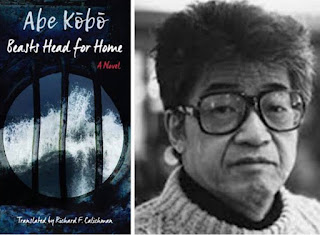"An Immense hatred keeps me alive... i would live for a thousand years if i were certain of seeing the whole world croak" - Louis Ferdinand Céline
So far as my participation in Paris In July Year Ten I have read
1. Colette- Two Early Short Stories
2. The Black Notebook by Patrick Modiano
3. "A Duel" by Guy de Maupassant ( A Franco-Prussian War Story)
4. Life, Death, and Betrayal at The Hotel Ritz in Paris by Tilar Mazzeo (non fiction)
5. How the French Invented Love by Marilyn Yolem (literary history)
6. "The Lost Child" by Francois Coppée
7. "The Juggler of Norte Dame" by Anatole France- no post
8. A Very French Christmas- A Collection of the Greatest Holiday Stories of France
9. "The Illustrious Gaudissart" by Honore de Balzac
10. After the Circus by Patrick Modiano
11. "Gaudissart II" by Honore de Balzac
12. 6:41 to Paris by Jean-Phillipe Blondel
13. "Noel" by Irene Nemirovsky
14. Giovanni's Room by James Baldwin
15. The Madeleine Project by Clara Beaudoux
16. Nais Micoulin by Emile Zola
17. The Occupation Trilogy by Patrick Modiano
18. Journey to the End of the Night by Louis-Ferdinand Celine
Journey to the End of the Night is an amazing, very influential, perhaps more in translation than in French, by a great writer whose legacy has been greatly damaged by his support during the German occupation of Paris of vicious anti-Semitic policies including the removal of all Jews to concentration camps. Celine (1894 to 1861, born just outside of Paris) wrote shameful hate-filled pamphlets for collaborationist organizations. He was part of an organization that rounded up Jews for deportation. After Germany's defeat he fled to Norway. He was convicted in absentia as a collaborator but was given amnesty in 1950 and returned to France. This being said, Journey to the End of the Night is a powerful precursor to rough traveling on the road styles of writing focusing on the darkest underside of society and the most venal side of society that became and is still very popular throughout the world.
The narrator begins his story in the trenches in WW One, in the French Army. He went into the army because, as he tells it, he was suckered in by patriotic rhetoric designed to make millions of poor men in Germany and France kill each other for the ends of their rulers, the hyper rich who care nothing for them. Celine's account of the trenches in WW One is brilliant. After the war, he moves from one adventure to another by happenstance encounters, he goes French Colonial Africa to work for a company involved in brutal capriciously cruel exploitation of their workers, rubber tappers. There is a scene where a rubber tapper seeking his meager pay is totally humiliated that is masterful. Our narrator seems to regard the Africans as near subhuman. He does not like it there, in fact he hates pretty much everything, and makes it to New York City which he depicts as an incredibly awful place. From there he travels to Detroit and works for a while in an automobile manufacturing plant. He sees the workers as totally dehumanized, little more than just another machine to the factory owners. He finds one decent person, a woman and of course she works in a brothel. She falls in love with him and he exploits and then abandons her to go back to Paris. Once there he goes to medical school (as did Celine), becomes a doctor, works in the slums and fails miserably, making very little money and helping almost no one. He likes sex, women only, but mostly as a distraction, he forms almost no real bonds. Physically he finds his patients disgusting. He finds little worthwhile in the human condition, the poor are exploited, the middle class idiots and the rich are no more than sanctified criminals.
This is a work full of bitterness and pain. I think part of the influence is in the way Celine sees through the multifarious shams of society. There is nothing he is afraid to say.
I am glad I read this book. It caused a huge stir when it was first published in Paris. I might read more of his work.
Mel u








